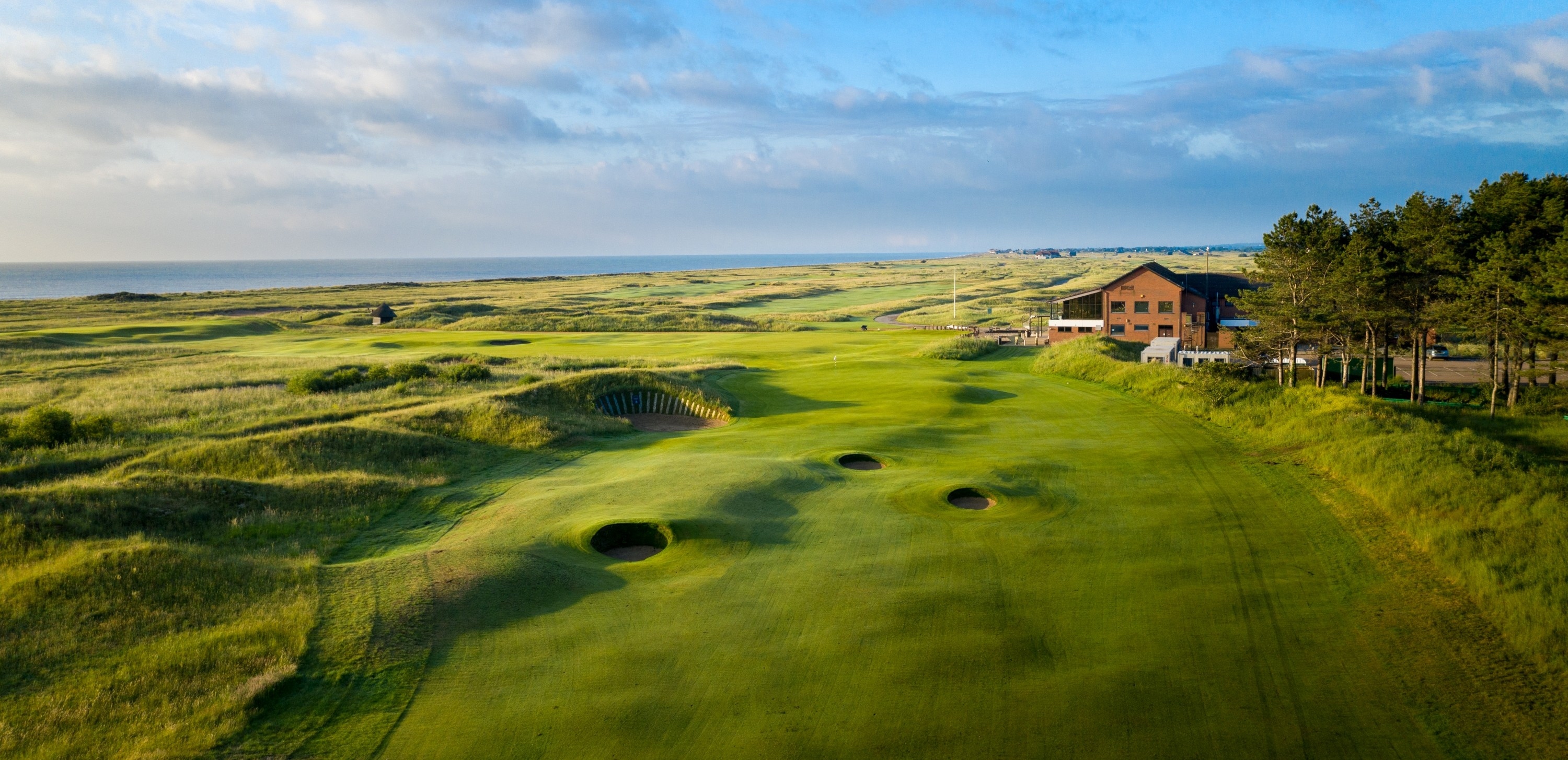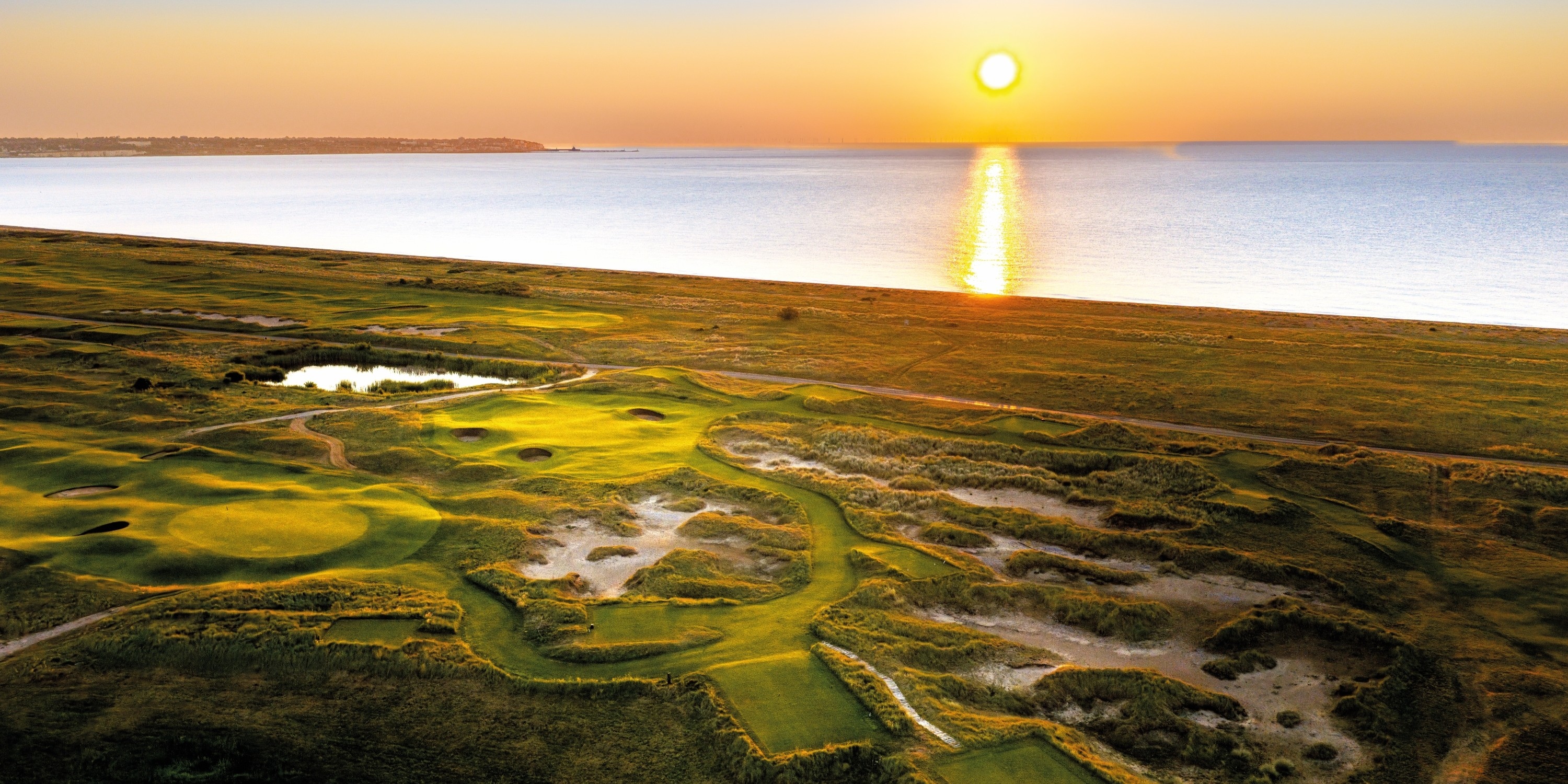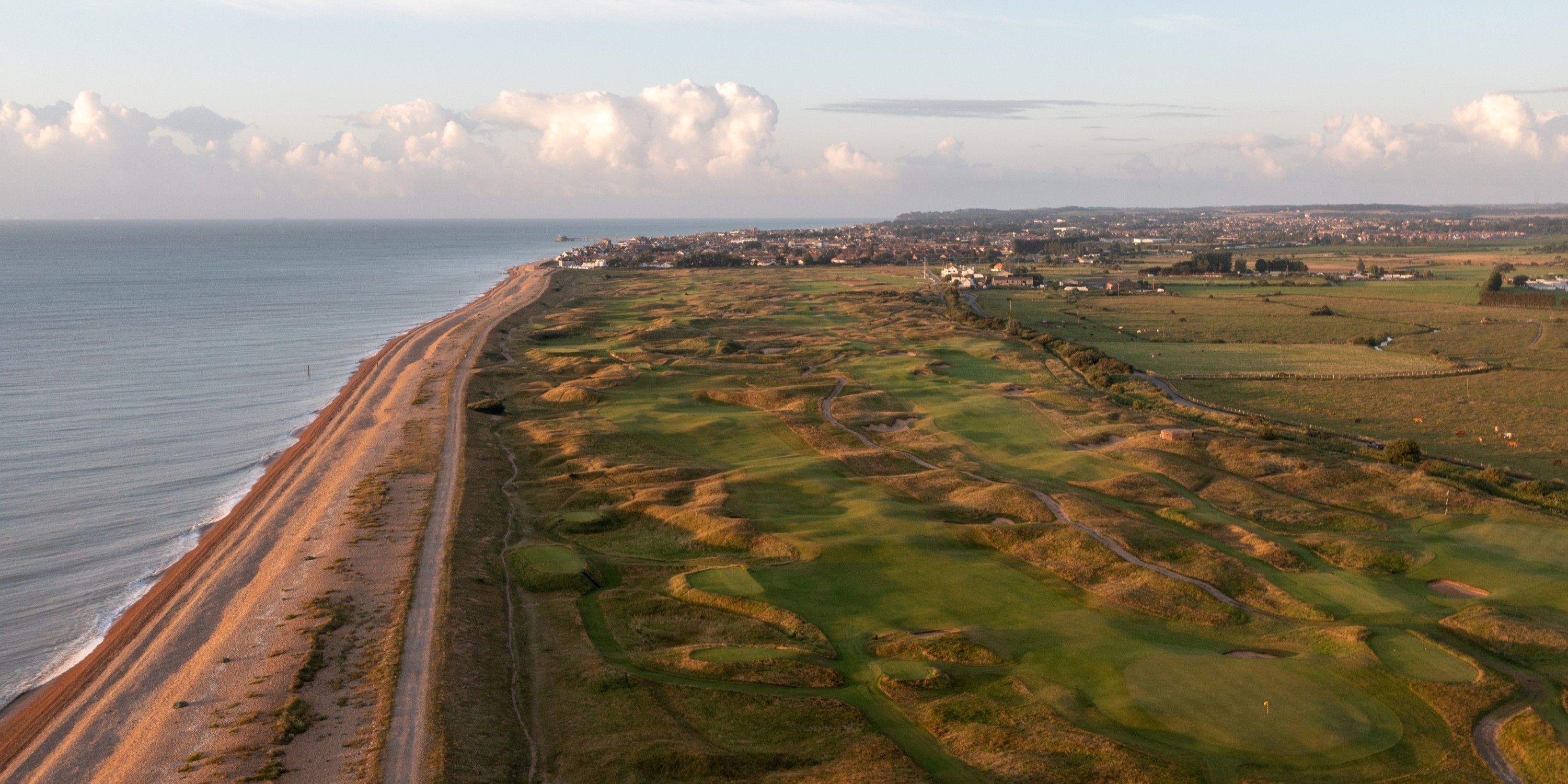
Royal St George's
Royal St George's | NCG Top 100s : GB & Ireland Golf Courses
Rankings

5.0
1st
1st
6th
6th
202nd
Located in the historic town of Sandwich, Royal St George's is near several fantastic sites for visitors, such as the iconic White Cliffs of Dover, which are only a short drive away. These chalk cliffs offer stunning coastal views and walking trails that showcase the beauty of the English Channel.
A bit farther inland, the city of Canterbury is known for its magnificent Canterbury Cathedral, a UNESCO World Heritage Site. The cathedral is a masterpiece of medieval architecture and a significant religious and cultural landmark.
Advertisement

A Brief History of Royal St George’s
So successful were the efforts of Dr Laidlaw Purves, of Royal Wimbledon, who both found the land and then designed the course, that just seven years later it became the first club outside of Scotland to host the Open Championship.
Dr Purves would doubtless be delighted to know that a sense of patriotism still pervades this corner of Kent, with the cross of England’s patron saint adorning the flag on each and every hole outside of Open week, and the club being considered one of the best courses in the UK.
In all, 15 Opens have been held here, most recently in 2021 when Collin Morikawa crafted his way around the Kent links. Ten years earlier, an emotional Darren Clarke won his maiden major here.
Royal St George’s Review | NCG Top 100s: GB&I Golf Courses
Advertisement

Perhaps these early skirmishes are best summed up at the 4th. The Himalaya bunker holds no fears for the pros but, for the rest of us, the huge mass of sand that's 40 foot deep is impossible to ignore off the tee. Even so, finding the safety of the Elysian Fields isn't the end of the challenge. Any firm mid-iron approach to a small green is going to flirt with out of bounds markers that sit barely a couple of paces behind the putting surface.
Although St George’s features as many as seven blind tee shots – and there is not a single marker post on the course – at most holes driver is an option from the tee with only the occasional bunker threatening. The real challenge comes closer to the greens where a combination of factors will put a great premium on the short game. Fairways often dissolve into rough hillocks, obligatory steep-faced bunkers gather shots from all around while severely sloped gullies tend to gather imprecise approaches.
These run-off areas are never more in evidence than at the short par-four 9th. What would otherwise be a straightforward hole features a plateau green that cruelly kicks away less than perfect shots in all four directions. Needless to say, subsequently saving par can be nigh on impossible.
As with all links courses, judging the strength and direction of the wind will be critical. That's all the more so here because, amazingly, no two successive holes run in the same direction. That should guarantee that one nine will not play significantly easier than the other, as well as demanding constant scrutiny from the players. Because of the towering dunes and expanses of wasteland that cover much of the central ground on the course, there is a sense of isolation on many holes and it can be difficult to gain one’s bearings.
The first seven holes, with the exception of the short 6th, keep the boundary of the course roughly to their right but after that only the long 14th gives any sense of being close to the perimeter. The contrast with Royal Lytham & St Annes, walled in on all four sides, could not be more marked.
Perhaps the best place to appreciate the shape of the links is from the high ground of the 5th tee from where it is possible to see several holes, each winding in its own distinct directions. From here, and then again on the par-five 7th, are to be found the best views of the English Channel and the resort of Margate, otherwise obscured by the dunes.
At Sandwich, the 14th probably sees the greatest range of scores, with out of bounds down the right and the Suez Canal running across the fairway some 330 yards from the tee but well within reach in dry conditions and depending on the wind.
How the four short holes are negotiated will be every bit as critical. Two are long and punishing while the others are more subtle but eminently capable of extracting a double bogey from the unwary. From the tee at the 3rd, it seems there are only two possible destinations: the oasis of the narrow-looking green or the voracious rough that surrounds it on all sides. Uniquely among Open layouts, it is a par three without a single bunker. Nor does it need one. The long green, which is on two tiers, dictates that club selection will typically range between a three and a six iron.
The famous 6th, known as The Maiden for the enormous dune that sits high above the hole, presents a different set of problems with the green subtly set at an angle to the tee and four bunkers each protecting the green on one side. And anyone who finds the 3rd a challenge, at 239 yards, will also wince at the 11th at 242. At least at the latter there is more room for error, with a generous green awaiting. Finally to the 16th, which is the shortest at 161 yards. However, by way of recompense it normally plays into the wind. With its eight bunkers, par is generally considered a good score.
Like any Open Championship venue, Sandwich also has its fair share of brutal par fours. The tough 8th is another hole where the fairway is interrupted by uneven ground while the 9th can play much longer than its 366 yards from the weekday tees would suggest and demands respect.
From this point, right in the heart of the course, the 10th travels relentlessly uphill to a green which falls away at the back towards some incredibly thick rough. The 12th is all about finding the right position from the tee and provides an opportunity to make up a shot which could well be lost again at the 13th, where a long second is almost inevitable.
The final two holes are every bit as difficult as they should be, with the 17th particularly dramatic, played to a crumpled fairway and, eventually, a slightly-raised green. The 18th features a narrow green with the famous Duncan’s Hollow gathering anything slightly left of target, including Sandy Lyle’s ball on his way to winning in 1985.
Our Panellists Notes for 2025
Sean Arble: Stands alongside the Old Course as far and away the most interesting Open rota course. Royal St George’s is vast, vital and awash with admirable details yet remains playable for the handicap golfer
Craig Redston: The best links course we have in England
David Walker: The charm and character of this unique links surely outweighs the occasional bad bounce.
Mike Robertson: The perfect blend of challenging, quirky, fun and interesting golf.
Chris Myatt: The best course in England in my opinion. Great design, near perfect conditions
Dan Murphy: The irregular shapes, sizes and contours of the greens supply endless fascination. It is hard to imagine better turf. The holes pivot in all conceivable – and indeed several inconceivable – directions. The setting alongside the English Channel is special. The course plays just as well regardless of the wind direction. It is simultaneously an Open Championship-level test while also being manageable (from the right tees). These are just some of the reasons why Royal St George’s is the best course in England.
Read more about our panellists here.
Advertisement

FAQs about Royal St George's
Royal St George's is located on the southeastern tip of England, in Kent. It is situated next to the town of Sandwich, and is in a golfing paradise. England's capital city is around 80 miles to the west of Royal St George's, while Dover and Folkestone are within 40 miles along the coast to the south.
Sandwich Station sits just a mile and a half to the west of the entrance to the golf club. Services run from London Charing Cross to Ramsgate via Sandwich - running every half hour in both directions. For those coming from further afield, London Gatwick, London Heathrow and London Stansted Airports are all around a two-hour drive, traffic dependant.
What golf facilities does Royal St George's offer?
Along with the stunning championship layout, Royal St George's is also home to some incredible practice facilities. There is a driving range, short game area and putting greens, along with practice nets.
Royal St. George's is primarily a members' club, but they do allow limited access to non-members. Guest play may have different rules or requirements compared to members. For example, it is highly recommended, and in some cases mandatory, that visitors take a Caddie.
All players at Royal St George's must have a handicap of 18.4 or less and are required to show handicap verification when checking-in on the date of play.
The price of a green fee at Royal St George's changes throughout the year, depending on the season. It is also different depending on whether it is a weekday or weekend.
Check out what our expects had to say about Royal St George's on the NCG Golf Podcast here.
Course Reviews

5.0 | 3 reviews





| 7 months ago
It's a nice course, but I just don't understand the hype about St George's at all. There are dozens of nicer, better, more interesting, more affordable links courses in England than St George's. I can only assume the people who make these lists for NCG are SG members because it just doesn't merit the rank of #1. Top 40 just about.
George Fletcher
7 months on





| 10 months ago
Easily the best course in England for me. The 4th, 6th and 14th are fantastic par 3, 4 and 5s, but the 10th is also a brilliant hole. The overall experience is as good as good as it gets in golf. The famous lunch in the dining room, followed by 18 holes - pure perfection.
Mike Robertson
10 months on





| a year ago
This is the best course in England
Dan Murphy
2 years on



